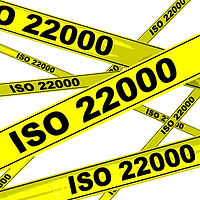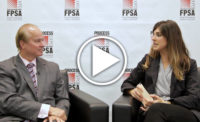What companies should know (and do) regarding FDA's new standards for food traceability

Technology and innovation are taking center stage as the FDA gets set to issue its long-awaited blueprint detailing additional standards under the 2011 Food Safety Modernization Act. While focused on food safety and traceability, the benefits for food manufacturers will reach beyond that, by minimizing risk and increasing efficiency. This is a long-overdue step towards modernizing and strengthening the food safety system in the United States and bringing technology and innovation to an industry that desperately needs a cost-effective solution to help manage the business and an ever-growing global supply chain.
Whether manufacturers are relying on domestic trade partners or international suppliers, once an ingredient enters the supply chain, maintaining cradle-to-grave traceability is essential. Companies need to track where the product came from, the SKUs and lots that those ingredients go into, and where those products are distributed. This documentation enables companies to track down the root cause and quickly recall products to safeguard consumers. This is a key reason why large distribution channels require proof that manufacturers have traceability in place as part of their agreements.
Generally, many small- to middle-market food companies have used a combination of Excel-based worksheets and hand-scribbled notes to manage their inventory. Although completely inefficient, it worked. However, in the past decade, as supply chains and distribution channels have grown more complex, and new direct-to-consumer business models have emerged, these manual traceability practices have fallen short.
Our world is changing, and the way that we look at food safety needs to change with it. Based on CDC estimates, more than 48 million people in the United States are sickened each year by foodborne illnesses. Almost 130,000 end up in the hospital, and nearly 3,000 die. These foodborne illnesses are, in large part, preventable. To avoid widespread issues, food manufacturers need to embrace technology to analyze data and rapidly respond to distribution partners, consumers, and suppliers when an incident occurs.
While it is too early to tell how extensive the FDA's new traceability requirements will be, it is safe to assume that companies will need to look to automated solutions to support these new standards. Without a doubt, there will be two distinct groups that emerge: those that institute the bare minimum to meet the new standards and those that embrace this opportunity to implement a solution that will not only mitigate risk but ignite efficiency and transform their operations.
The good news for both groups is we are at a junction where technology and innovation have caught up to the needs of manufacturers, and there are a myriad of solutions available, allowing companies, regardless of size, to embrace automation. Additionally, some traceability solutions on today's market offer added value with capabilities around formula, recipe and inventory management, material requirements planning (MRP), and supplier management. This allows companies to implement the functionality they need now, and leverage additional features to manage growth, monitor costs, and improve efficiency, as needed. Once a company has the right technology in place, the goal is to then move to a more predictive model, as opposed to a reactionary one.
At a bare minimum, companies that decide to implement automated traceability will benefit from the ability to:
- Quickly sort through the volumes of data, pinpoint the impacted items, and respond to an incident promptly to limit exposure
- Track the affected items down to the exact lots and stores, reducing the extent of a recall
With a solution to track down contaminated lots and communicate to distributors in minutes rather than days, manufacturers also minimize the negative impact on their brand and their bottom-line. It’s a win-win for manufacturers, consumers, and distributors.
Without a doubt, there will be confusion over the coming months concerning the new FDA standards. While these changes can feel overwhelming, they offer an excellent opportunity to introduce technology that can streamline your business and help you to scale.
If you need help along the way or would like to explore traceability solutions, please don't hesitate to reach out to me directly at fbalestreri@ssfllp.com. Our team is excited to help support you in your journey.
Looking for a reprint of this article?
From high-res PDFs to custom plaques, order your copy today!





